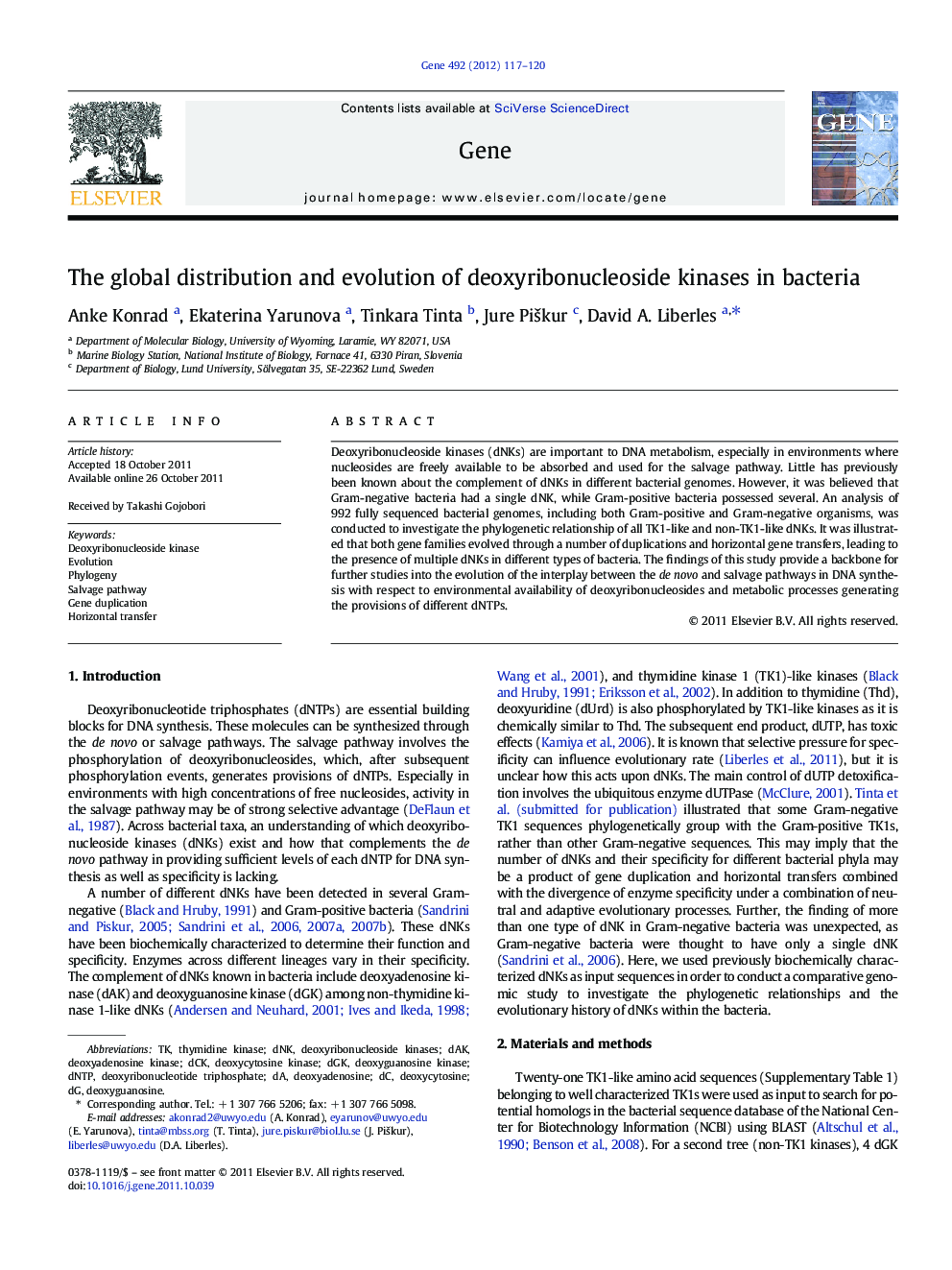| Article ID | Journal | Published Year | Pages | File Type |
|---|---|---|---|---|
| 2818152 | Gene | 2012 | 4 Pages |
Deoxyribonucleoside kinases (dNKs) are important to DNA metabolism, especially in environments where nucleosides are freely available to be absorbed and used for the salvage pathway. Little has previously been known about the complement of dNKs in different bacterial genomes. However, it was believed that Gram-negative bacteria had a single dNK, while Gram-positive bacteria possessed several. An analysis of 992 fully sequenced bacterial genomes, including both Gram-positive and Gram-negative organisms, was conducted to investigate the phylogenetic relationship of all TK1-like and non-TK1-like dNKs. It was illustrated that both gene families evolved through a number of duplications and horizontal gene transfers, leading to the presence of multiple dNKs in different types of bacteria. The findings of this study provide a backbone for further studies into the evolution of the interplay between the de novo and salvage pathways in DNA synthesis with respect to environmental availability of deoxyribonucleosides and metabolic processes generating the provisions of different dNTPs.
► Phylogenetic characterization of deoxyribonucleoside kinase gene families in bacteria. ► Identification of timing of duplication and horizontal transfer events. ► Characterization of lineage-specific changes in enzyme complement. ► Presentation of evolutionary context of Gram negative bacteria with multiple kinases.
